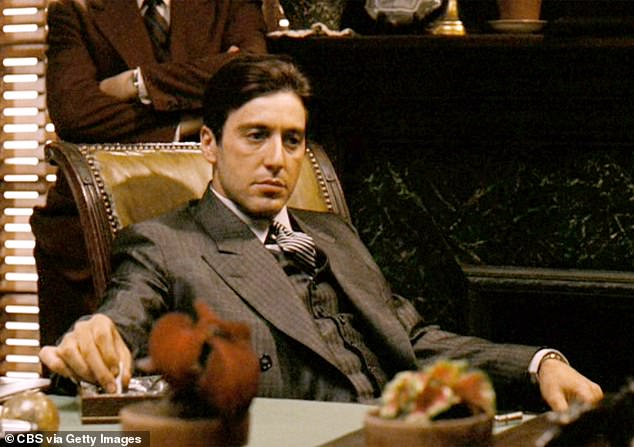Al Pacino is considered a Hollywood legend and has starred in iconic films such as The Godfather trilogy and Scarface.
But the prolific star, 84, recalled having a falling out with his late mother, Rose Gerard Pacino, over his choice to become an actor in his new memoir Sonny Boy, titled after the nickname his mother gave him.
The actor, who revealed he went bankrupt twice during his career, and his “emotionally fragile” single mother had argued when he dropped several of his classes at school and moved away.
Rose, who struggled with depression, later died of an overdose when Pacino was just 22 years old and was unable to experience his son’s meteoric rise to fame.
‘If I’m lucky enough, if I make it to heaven maybe I’ll be reunited with my mother there. “All I want is the chance to walk up to her, look her in the eyes and just say, ‘Hey mom, do you see what happened to me?'” he wrote, according to the Mirror.
Legendary film icon Al Pacino, 84, recalled having a confrontation with his mother Rose over his decision to become an actor; portrayed as Michael Corleone in The Godfather (1972)
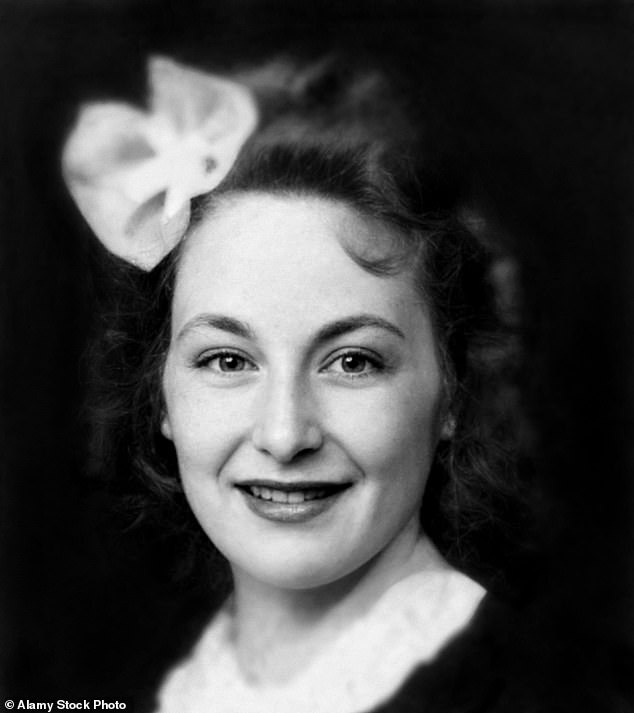
Rose, who struggled with depression, died of an overdose when Pacino was just 22 years old and was unable to experience her son’s meteoric rise to fame; she appears in the photo in 1940
One of the most influential actors of the 20th century, Pacino has earned numerous accolades, including an Academy Award, two Tony Awards, and two Primetime Emmy Awards.
His impressive list of accolades also includes four Golden Globes, a BAFTA, two Screen Actors Guild Awards, and prestigious lifetime achievement honors such as the Cecil B. DeMille Award (2001), the AFI Life Achievement Award (2007), the National of Arts (2011) and Kennedy Center Honors (2016).
He received the Academy Award for Best Actor for his role in Scent of a Woman (1992).
He was also nominated for The Godfather (1972), Serpico (1973), The Godfather II (1974), Dog Day Afternoon (1975), …And Justice for All (1979), Dick Tracy (1990), Glengarry Glen Ross ( 1992) and The Irishman (2019).
He also starred in memorable films such as Scarface (1983), The Godfather Part III (1990), Carlito’s Way (1993), Heat (1995), Donnie Brasco (1997), The Devil’s Advocate (both 1997), Once Upon a Time in Hollywood (2019) and House of Gucci (2021).
Born in Manhattan, New York, on April 25, 1940 as Alfredo James Pacino, he was the only child of Sicilian Italian-American parents Rose (née Gerardi) and Salvatore Pacino.
His parents divorced when he was only two years old and he went to live with his mother and parents.
Pacino’s mother died at the age of 43 in 1962.
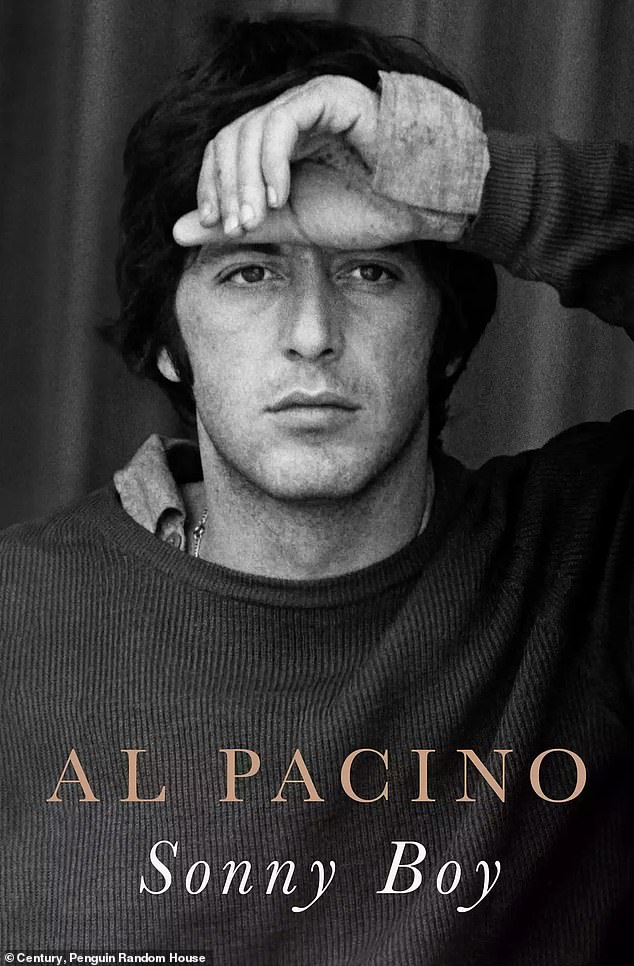
The actor spoke about his desire to be reunited with his mother in heaven in his new memoir, Sonny Boy, named after the nickname he was given.
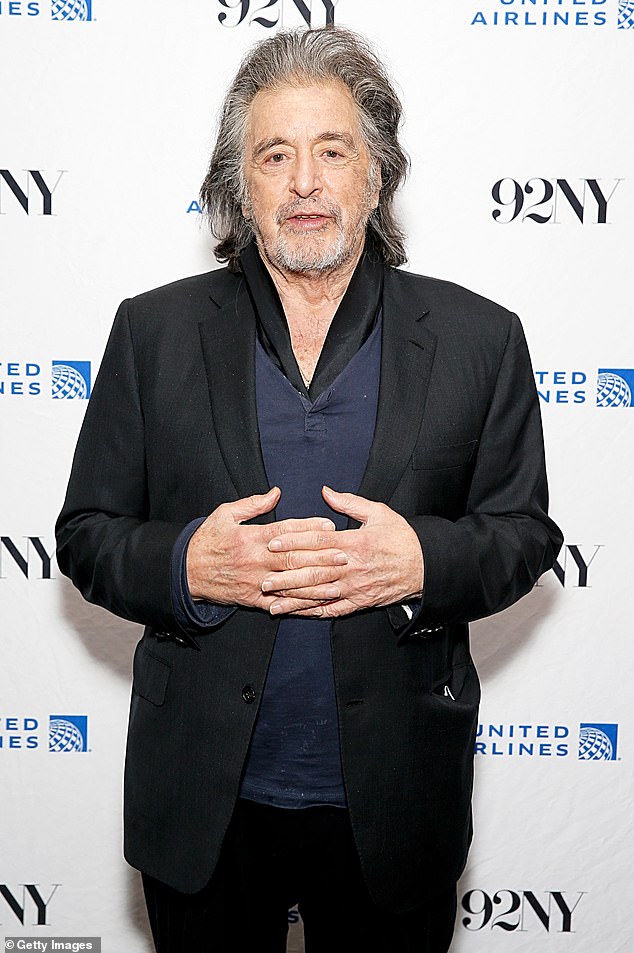
‘If I’m lucky enough, if I make it to heaven maybe I’ll be reunited with my mother there. “All I want is the chance to walk up to her, look her in the eyes and just say, ‘Hey mom, do you see what happened to me?'” he wrote, according to the Mirror; seen in 2023
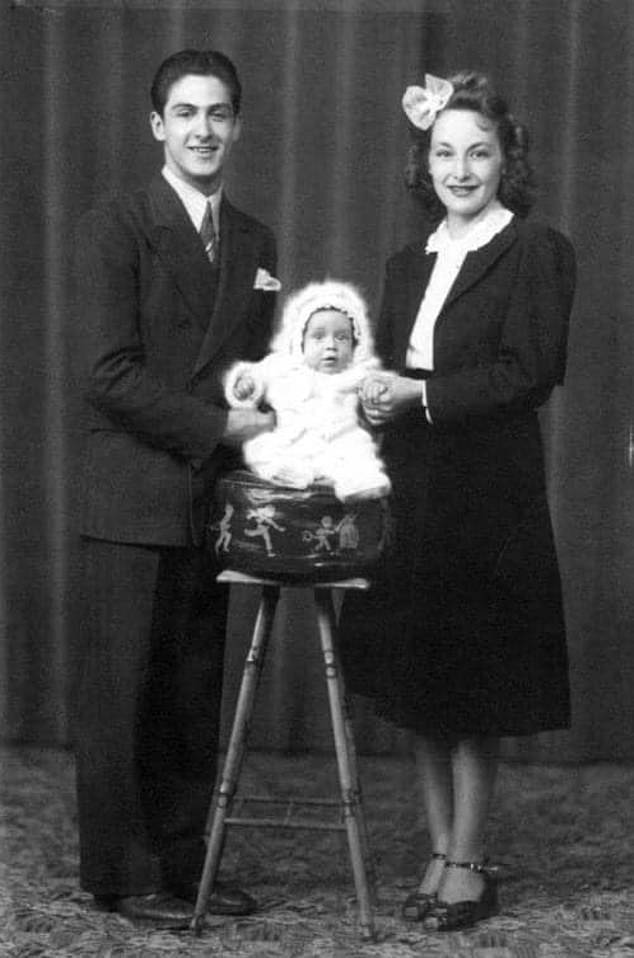
Born in Manhattan, New York, on April 25, 1940 as Alfredo James Pacino, he was the only child of Sicilian Italian-American parents Rose (née Gerardi) and Salvatore Pacino; seen with his parents in 1940
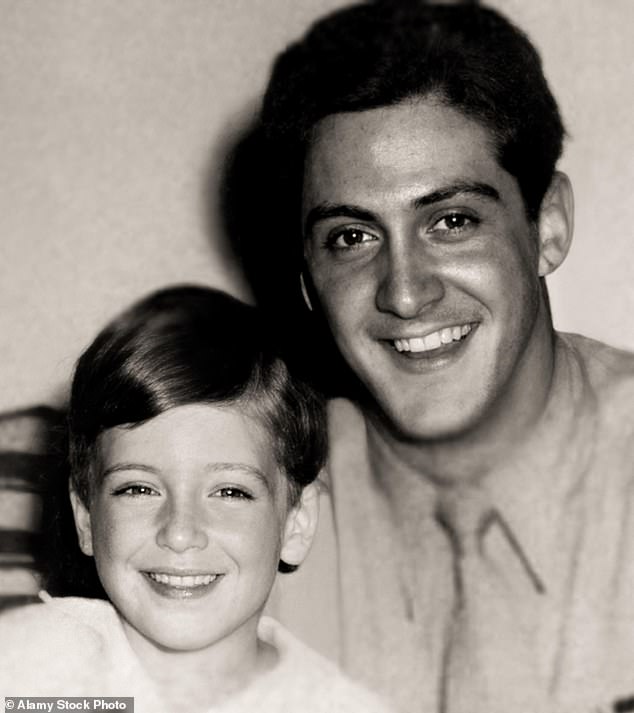
His parents divorced when he was only two years old and he went to live with his mother and parents. Pacino’s mother died at the age of 43 in 1962; in the photo with his father
After playing a heroin addict in The Panic in Needle Park (1971), he caught the attention of director Francis Ford Coppola, who cast him as Michael Corleone in the iconic mafia film The Godfather (1972).
The relatively unknown actor faced stiff competition, auditioning alongside Hollywood heavyweights such as Jack Nicholson, Robert Redford and Warren Beatty.
But, to the dismay of studio executives, Coppola cast Pacino in the role of the youngest son of the boss of the Corleone Mafia family, who later reluctantly becomes involved in the criminal underworld and eventually leads the family.
From there, his acting career has continued to rise to new heights.
His last film was the Johnny Depp-directed biographical drama ‘Modi: Three Days on the Wing of Madness’.
Elsewhere in his memoirs, he revealed that his blockbuster movies didn’t stop him from going broke—twice.
In the book, which is available now, the prolific actor writes about how his early successes didn’t bring him much income by Hollywood standards, leading him to run out of funds in the mid-1980s, when he was working infrequently. .
Then, decades later, he found himself with nothing again after his blockbusters became increasingly rare, even as his expenses had skyrocketed.
Pacino, who has never married, writes in the book how his then-girlfriend Diane Keaton helped him overcome a first brush with insolvency in the mid-1980s.
Ironically, Pacino’s financial problems begin with one of his biggest hits, The Godfather.
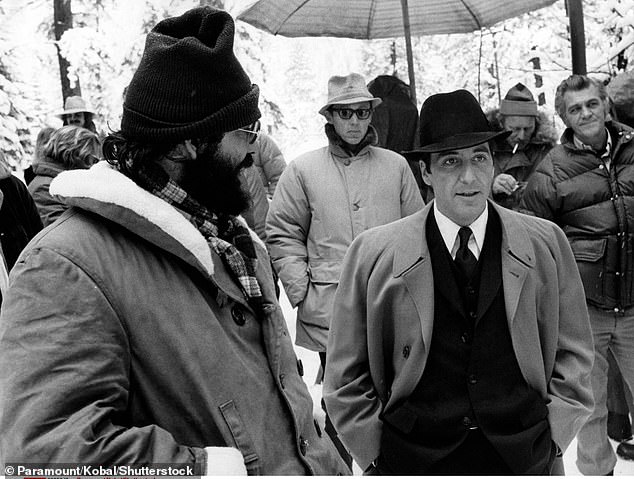
One of the most influential actors of the 20th century, Pacino has earned numerous accolades, including an Academy Award, two Tony Awards, and two Primetime Emmy Awards; Pictured on the set of The Godfather 2 (1974)
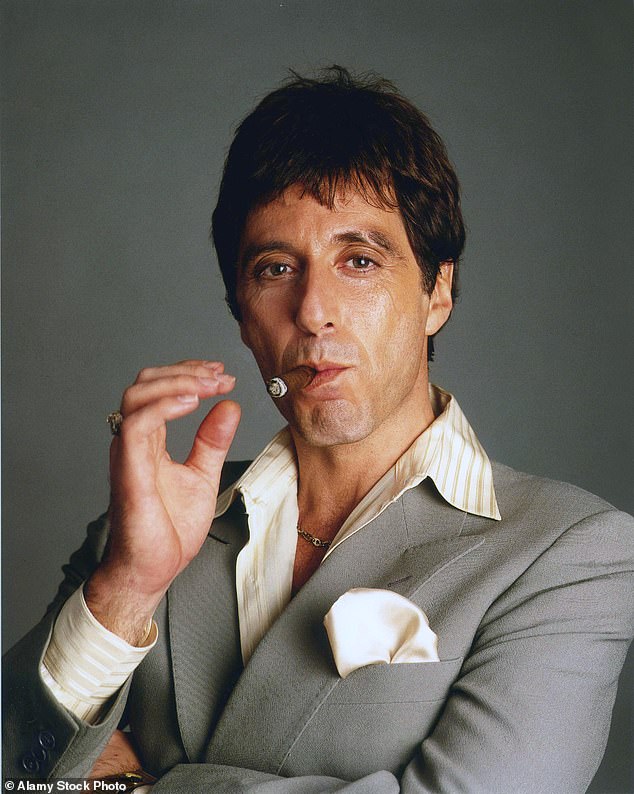
In addition to the Godfather trilogy, he also starred in memorable films such as Scarface (1983), Carlito’s Way (1993), Heat (1995), Donnie Brasco (1997), The Devil’s Advocate (both 1997) and Serpico (1973), to name a few. only a few; seen in a still image of Scarface
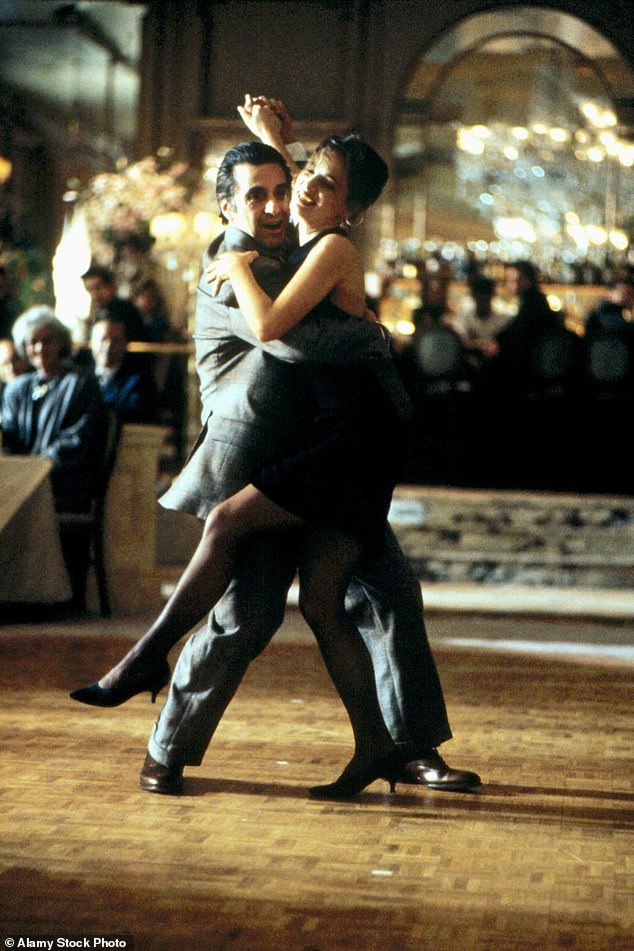
He received the Academy Award for Best Actor for his role in Scent of a Woman (1992); seen in a still from the film with Gabrielle Anwar
Despite playing the lead role in that film, Pacino was overshadowed by Marlon Brando as his on-screen father, who would win the Best Actor Oscar for his acclaimed performance.
And because Pacino was still at such an early stage in his career, he reportedly only earned about $35,000 for his performance, which would be about $265,000 in today’s dollars, well below the expected payday of a leading actor for a blockbuster Oscar winner made by a major studio.
“When I finished making The Godfather, I was broke, not that I had ever had money, but now I owed money,” Pacino writes, via Page six. “My manager and agents received their share of my salary while I had to live off the support of Jill Clayburgh.”
It wasn’t until 1983’s Scarface that Pacino had another big hit. He writes that the Brian De Palma-directed reinvention was the most lucrative film in its history.
‘To this day it is still the most important film I have made. The remains still support me,” he writes. “I can live off of it,” he adds. “I mean, I could, if I lived like a normal person.”

